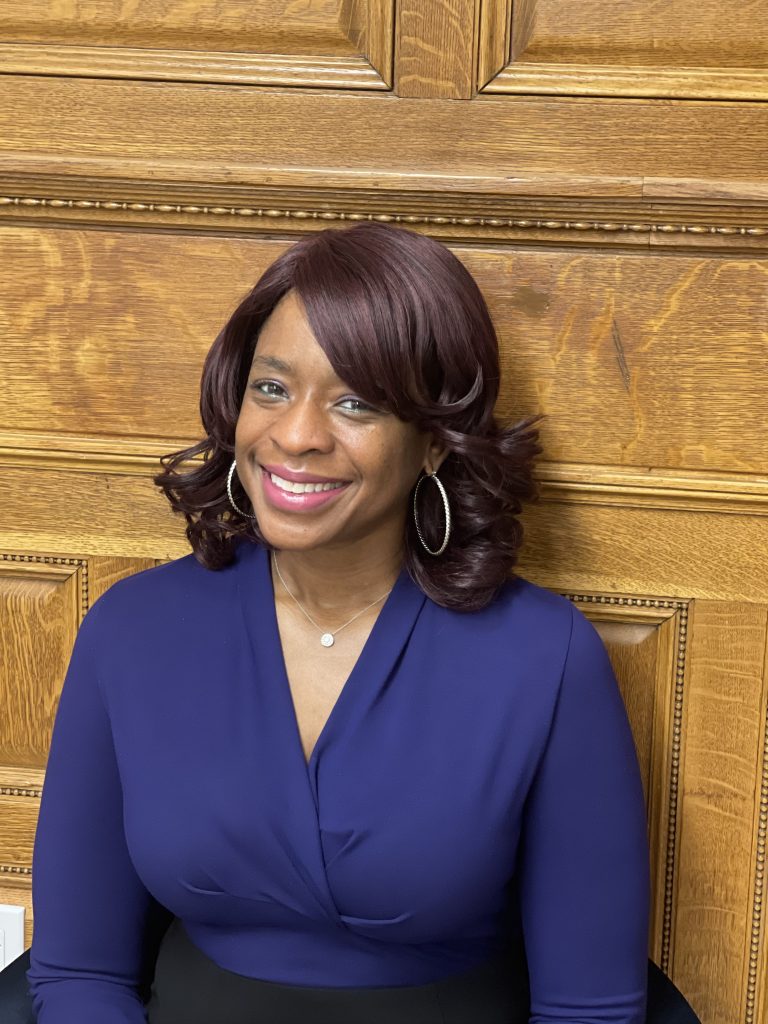Lavonda Davis is a Business Relationship Manager with Chase for Business Banking. With over 26 years of experience at Chase and in financial services, Lavonda has a long standing commitment to working closely with business owners by understanding how their business operate, providing them with the best solutions and adding value. Lavonda lives in Harlem, where she was raised, and is very engaged in her community, including serving as an Outreach Coordinator for Mt. Neboh Baptist Church.
The disruptions of the past year have cast a spotlight on the unique hurdles that Black business owners face, including lack of access to capital, financial education, and networking opportunities.
The JPMorgan Chase Institute recently shared that Black-owned businesses often face lower revenues, profit margins and access to cash, and are underrepresented among companies that have external financing. What’s more, over 400,000 Black-owned businesses shuttered between February and April 2020, making up 41 percent of those that permanently closed their doors.
This data is certainly confronting, but there are several actions that Black business owners can take to begin to overcome some of these challenges and better position their businesses for success.
Optimize working capital and cash flow
Working capital is the lifeblood of every company, allowing them to stay open, fund day-to-day operations, and invest and scale for their future. However, according to JPMorgan Chase Institute research, Black-owned businesses today hold materially less cash than white-owned organizations.
It’s critical for business owners to evaluate their short and long-term funding needs and refine their capital management strategy. This could be achieved by reducing operating costs, pivoting products and services to cater to new segments, changing distribution models or engaging potential new investors. Ultimately, these actions—paired with a strong strategy—can help businesses manage and mitigate risk during periods of uncertainty and continue to scale.
Lean into digitization
COVID-19 rapidly accelerated the adoption of digital tools to help businesses stay open and remain competitive, as business leaders grapple with new ways of working and tighter resources. In fact, JPMorgan Chase’s Business Leaders Outlook Survey found that more than half of midsize businesses have increased their use of online banking and treasury tools, including electronic payments, since the start of the pandemic.
Businesses that are leaning into online customer engagement have been able to reduce disruptions to their operations, and even find opportunities for growth through online sales channels. Today’s successful businesses are also harnessing digital financial solutions, like real-time banking, payments, and cash flow tools. Many leaders started using these tools out of necessity and are already seeing long-term benefits in driving efficiencies and simplifying financial operations.
Focus on adaptability and resiliency
The pandemic has forced many business leaders to re-evaluate their operating models and highlighted the importance of proactively creating a resiliency plan for a range of worst-case scenarios. More than half of businesses have made changes to their operating models or plan to do so permanently, showing that leaders are taking constructive action to safeguard their business’ future in this rapidly changing environment.
With many shifting their operations online over the last 12 months, cybersecurity has become one of the most important pillars of business resiliency. According to the 2020 Association for Financial Professionals Payments Fraud and Control Survey, 81% of companies were targets of payments fraud last year. To help protect their organizations against cyberattacks, executives today are making employee education and training their top priority.
Coming together to support Black-owned businesses
The local business community has an opportunity and a responsibility to lean in and better support Black business owners—whether it’s through advice, resources, mentorship or investment.
JPMorgan Chase recently announced a five-year, $30 billion Path Forward commitment to help close the racial wealth gap in traditionally underserved Black and Latinx communities.
The firm launched the Small Business Forward initiative in 2015 as part of the overall Path Forward commitment. Over the last five years, the firm has provided more than $200 million in philanthropy, including $20 million in COVID-19 relief, to support underserved small businesses in cities around the world. These funds provided access to capital and technical support to more than one million diverse small businesses, which have raised nearly $10 billion in capital and increased revenue by an average of 22 percent.
As a society, we have a long way to go to fix racial disparities in the business community, but coming together to elevate Black business owners as they navigate the pandemic will help level the playing field and bring more value and ingenuity to our communities.
Lavonda Davis partners with small business and community leaders in Harlem and around New York City to provide entrepreneurs with critical resources around accessing capital, growing their networks and building for the future. Some of these events include Advancing Black Entrepreneurs Summits, Access to Capital seminars for women of color business owners such as the BOSS Network and Essence, Currency Conversations, Chase Chats and Google Small Business Webinars.
Sponsored content from JPMorgan Chase & Co

